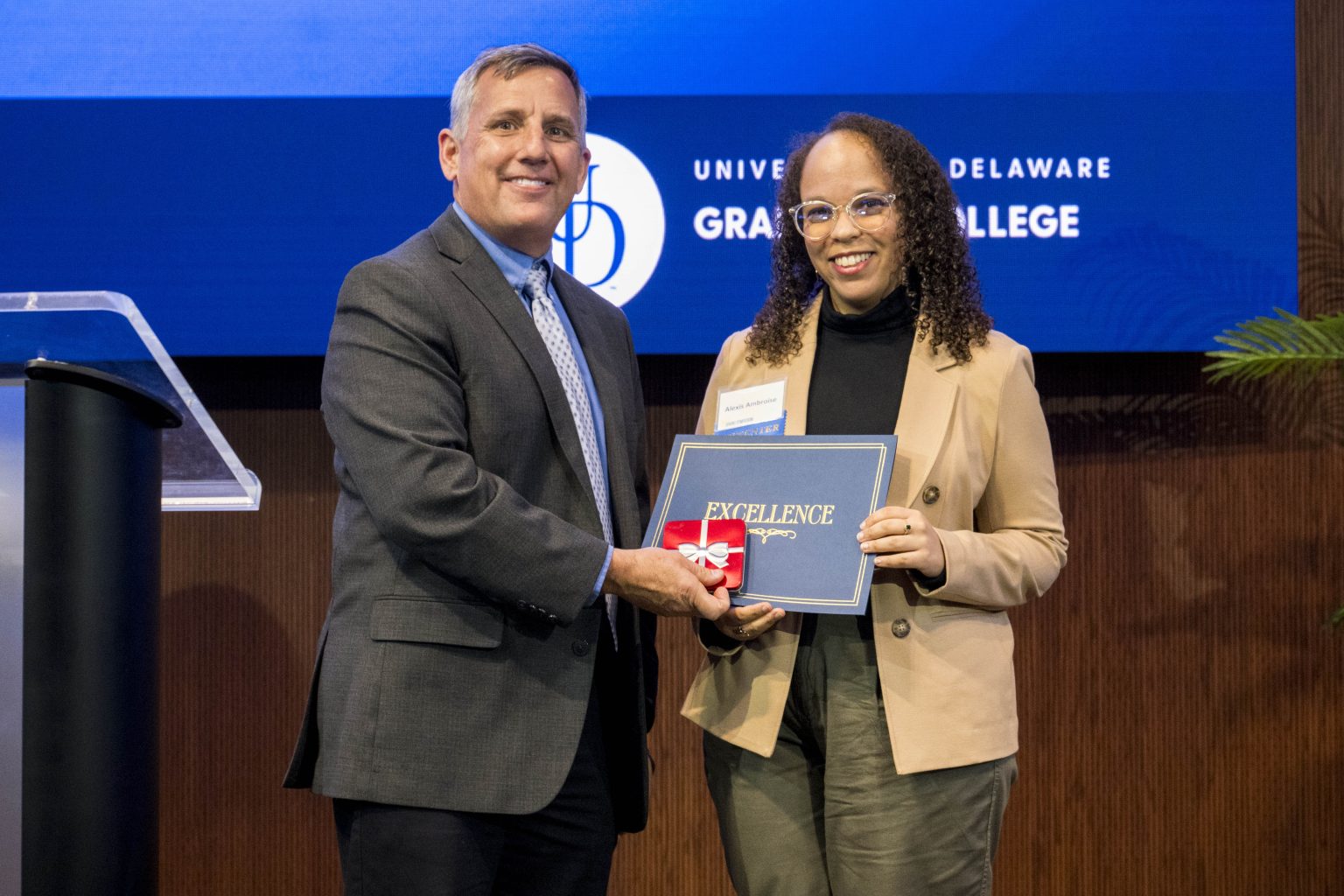Human Development and Family Sciences
Tackling Community Challenges

Graduate College Spark! Symposium highlights the power of community-connected research
When Michael Vaughan, vice provost for equity at the University of Delaware, introduced the program for the Graduate College’s sixth Spark! Symposium and its theme, “Connecting Our Research to Our Community,” he emphasized that research connected to community needs is a gift. He said once that gift is made, we must “fortify our minds and hearts to withstand the awesome firestorm of impact that the spark of our giving starts.” The six speakers who took the stage demonstrated their readiness to meet the challenges and responsibilities of making positive differences in our world.
Ignite Award
Rebecca Daniels, a biomechanics and movement science doctoral student, received the Ignite Award from the event’s four-judge panel. Her talk, “Measuring Parkinson’s Symptoms One Force Pulse at a Time,” highlighted the collaborative efforts between healthcare providers, patients and researchers in caring for people with Parkinson’s, a chronic and progressive neurological disorder caused by the damage or death of nerve cells in the brain.
“The Parkinson’s community in Delaware is amazing,” she said. “The patients I work with really care not just about improving their own lives but also the lives of future people with Parkinson’s. They’re doing the exercise programs and participating in studies — they have such a wonderful, collaborative, empowering energy that’s infectious to be around.”
Daniels is developing a tool to measure “force pulse,” a quick intentional burst of force produced by a muscle or group of muscles, to have a reliable, objective measure of the severity and progression of motor symptoms. She constructed the device used in her research for the surprisingly low cost of $200. Such a low-cost tool could help bridge gaps in healthcare access, improve patient outcomes and drive forward scientific research in Parkinson’s disease.
“I came to UD with an interest in aging, but Parkinson’s was totally new to me,” Daniels said. “I think Parkinson’s is here to stay in my life and my research career because these people are very special, and they experience challenges that are much harder than just normal aging.”
Please click here to view the full article
